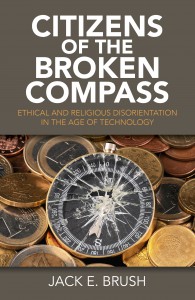
When we consider that it has been over 150 years since the publication of Darwin’s groundbreaking work On the Origin of Species, we have to ask ourselves why the validity of his ideas is still a topic of discussion and sometimes heated debate. No one worries today about the discoveries of Kepler, Galileo or Newton, although the theories of these scientists brought about a revolution in our understanding of the physical world. But Darwin?! After he died, he was lucky to be placed in Westminster Abbey off to the side, as it were, in the shadow of the great Sir Isaac Newton. And even today, the creationists are still convinced that the theory of evolution is wrong. So we ask the question: What did Darwin say that was so disturbing?
You don’t have to read much of the literature on Darwin and Darwinism to discover that the root problem for his critics has very little to do with science and very much to do with religion and
philosophy. Darwin himself gives us a clue to this in a letter that he wrote to his friend Sir John Fordyce on 7 May 1879:
It seems to me absurd to doubt that a man may be an ardent theist and an evolutionist…But as you ask, I may state that my judgment often fluctuates…In my most extreme fluctuations I have never been an Atheist in the sense of denying the existence of God. I think that generally (and more and more as I grow older), but not always, that an Agnostic would be the more correct description of my state of mind.
In describing himself as an agnostic, Darwin implies that it is impossible to know, or better, to demonstrate in any convincing manner the existence of God. So our question now becomes: What was it about his theory that rendered a demonstration of the existence of God impossible?
In order to answer this question, we have to place Darwin in the historical context of scientific development from the seventeenth to the nineteenth century. For simplicity, I focus on Galileo and Newton. Before the discoveries of Galileo, the Western world still held to the basic Aristotelian view of the physical universe.
Everything in the region of our daily lives was thought to be composed of the four elements: earth, fire, air and water. In contrast, the moon and the heavenly bodies beyond it were thought to be composed of a fifth substance: the quintessence or ether. It was the substance of perfection, and the bodies composed of it had the geometric shape of perfection: the sphere.
According to this view, there were several regions of the heavens ascending from the moon to the stars and finally to the highest region of the deity. Galileo destroyed this worldview of perfection by discovering among other things spots on the sun and mountains on the moon. So the inorganic world turned out to be less perfect than one had thought. Then, Newton developed in his Principia Mathematica the laws of force that describe the movement of objects on earth as well as in the heavens. Since the heavens obey the same physical laws as objects on earth, they could no longer be viewed as sacred. By the end of the eighteenth century, Newton’s physics had been developed by other scientists such as Leonhard Euler and Joseph Louis Lagrange into a totally new worldview, a mechanical world where everything has a cause and an effect.
In this world, there is no place for God to interact with humans; the causal nexus is complete and exclusive.
 Citizens of the Broken Compass
Citizens of the Broken Compass
Ethical and Religious Disorientation in the Age of Technology
Jack E. Brush
Citizens of the Broken Compass is a collection of articles dealing with a range of topics from the theory of evolution to human rights.
Intelligent yet accessible, it aims at promoting dialogue about the growing discrepancy between our technological achievements and our ethical sensitivities; proposing the ethical disorientation in
society cannot be separated from the religious confusions stemming from a radical, fundamentalist view of Christianity.
- Paperback £9.99 || $16.95
- May 29, 2015. 978-1-78279-954-2.
- BUY | AMAZON US | AMAZON UK
- eBook £6.99 || $9.99
- May 29, 2015. 978-1-78279-955-9.
- BUY | AMAZON US | AMAZON UK
Categories:
0 comments on this article







